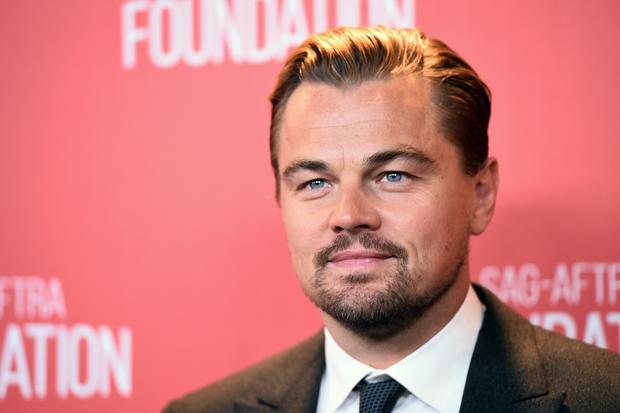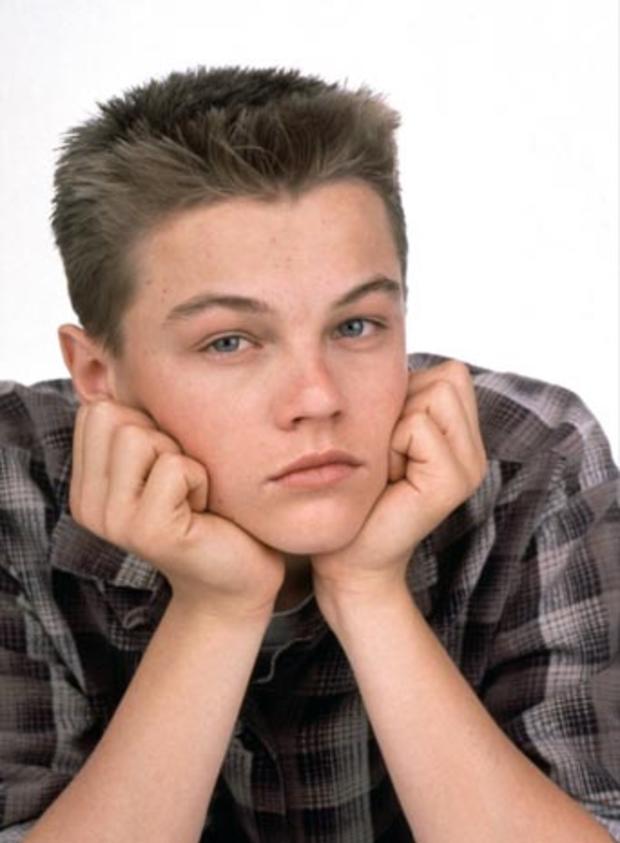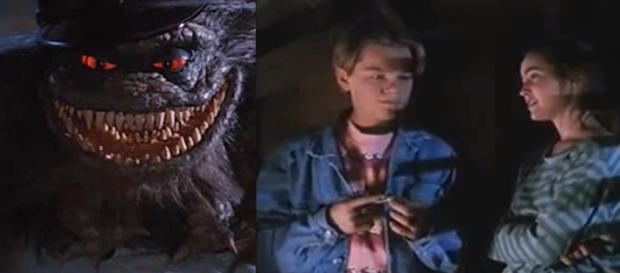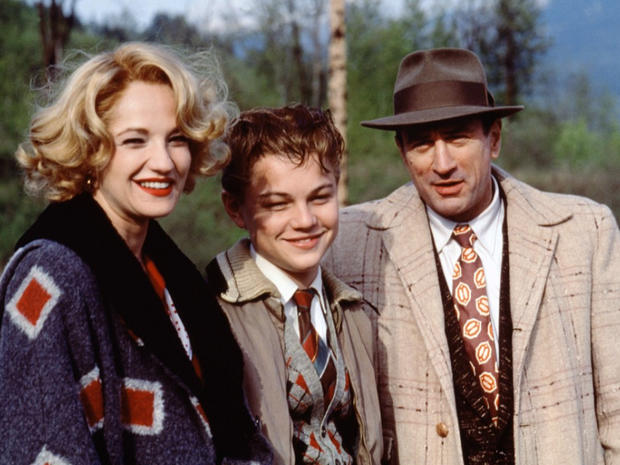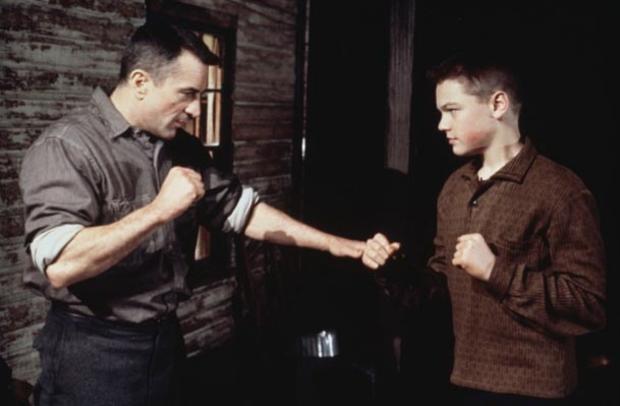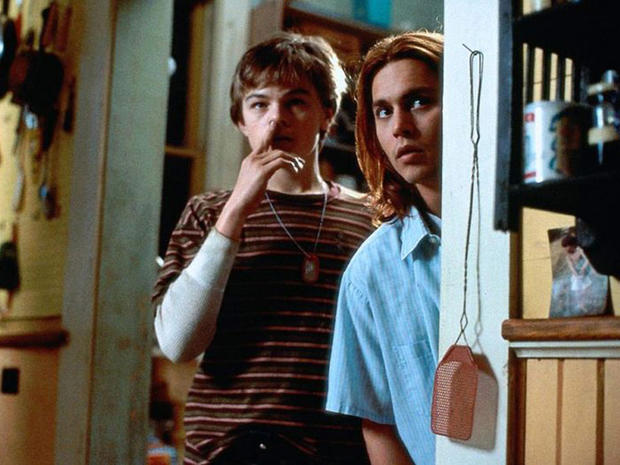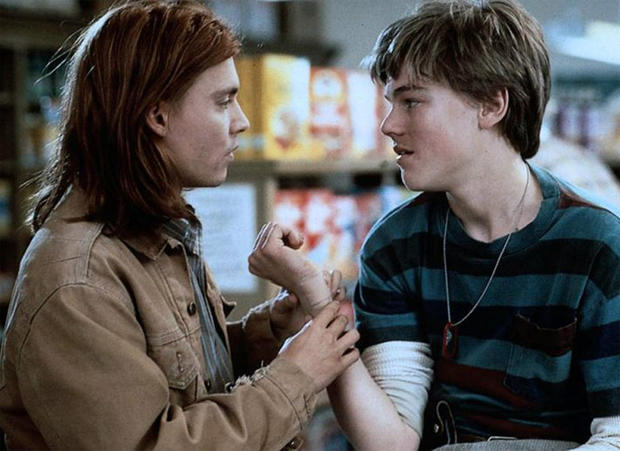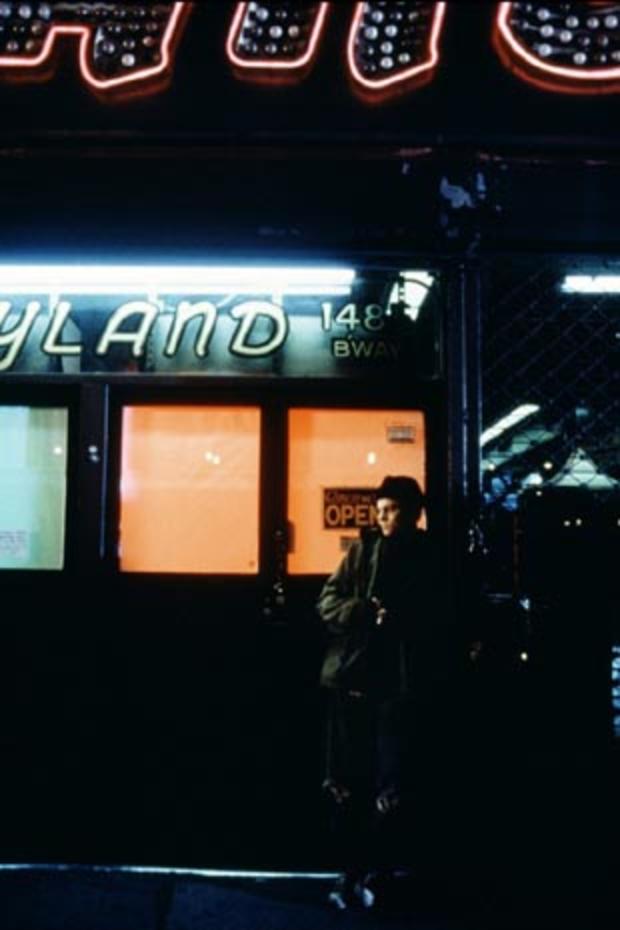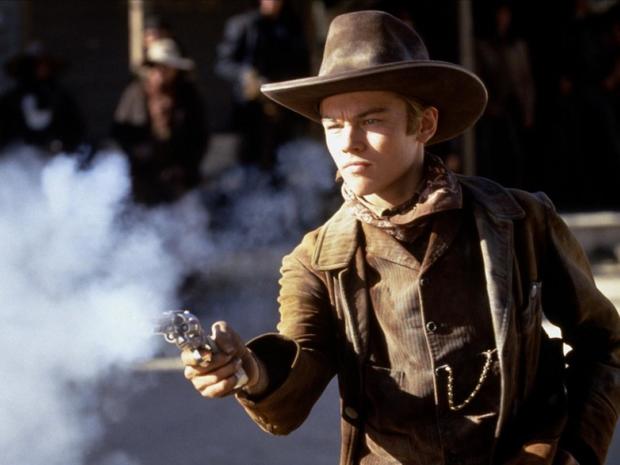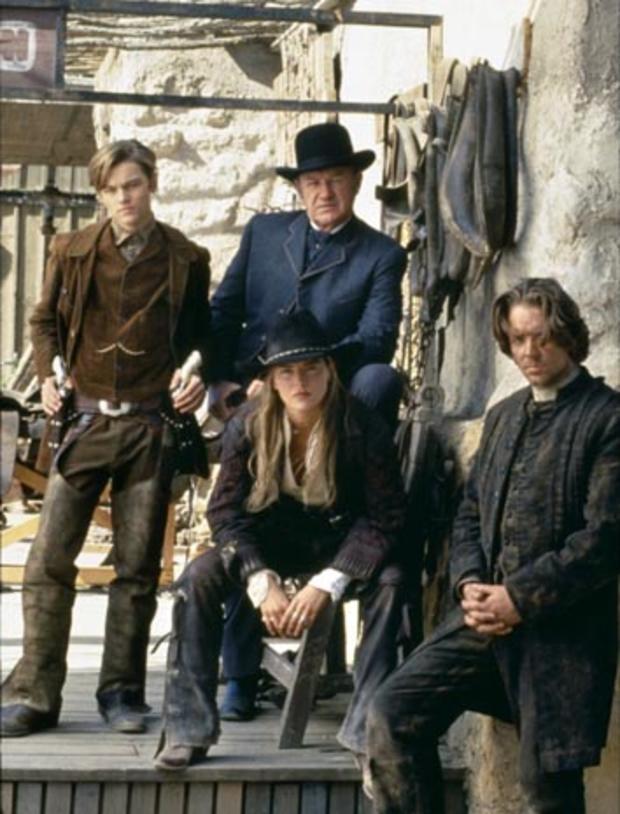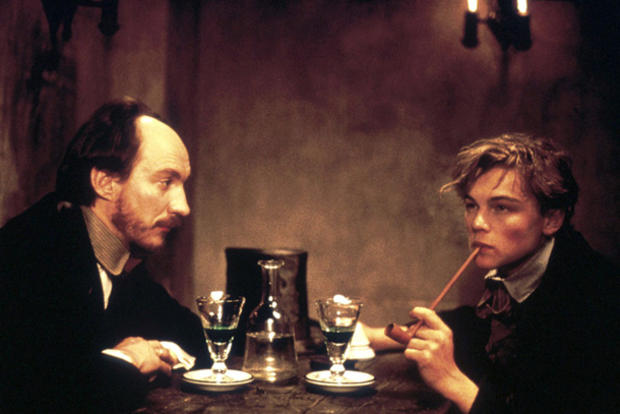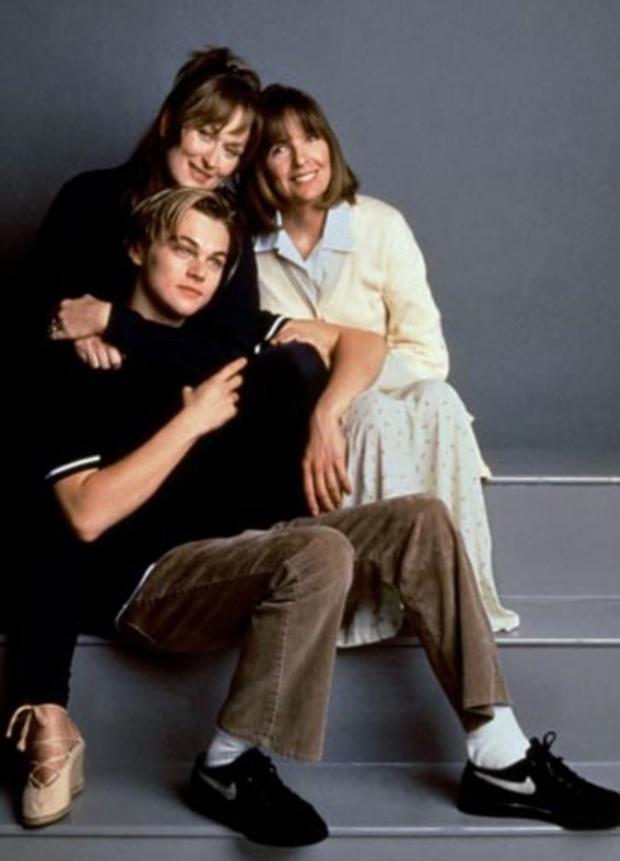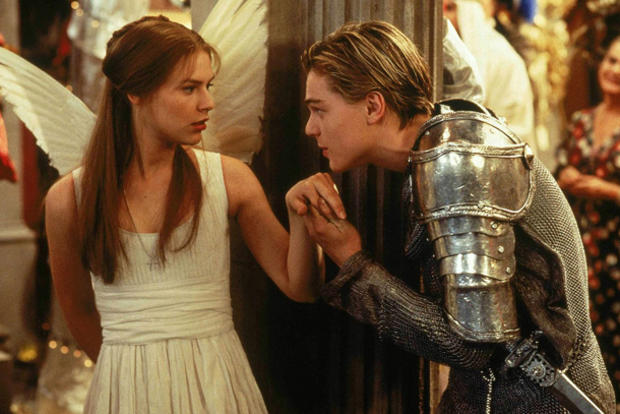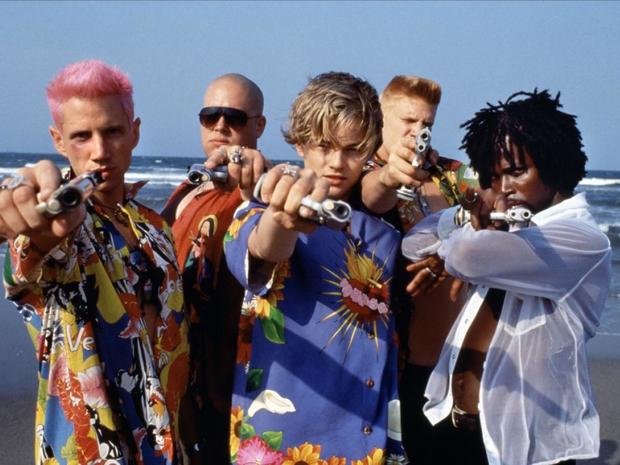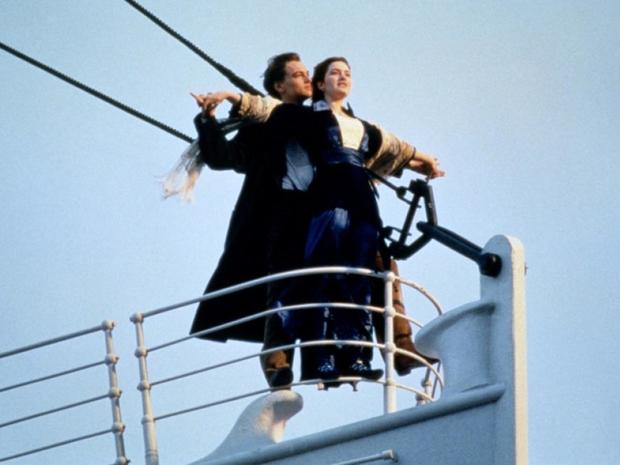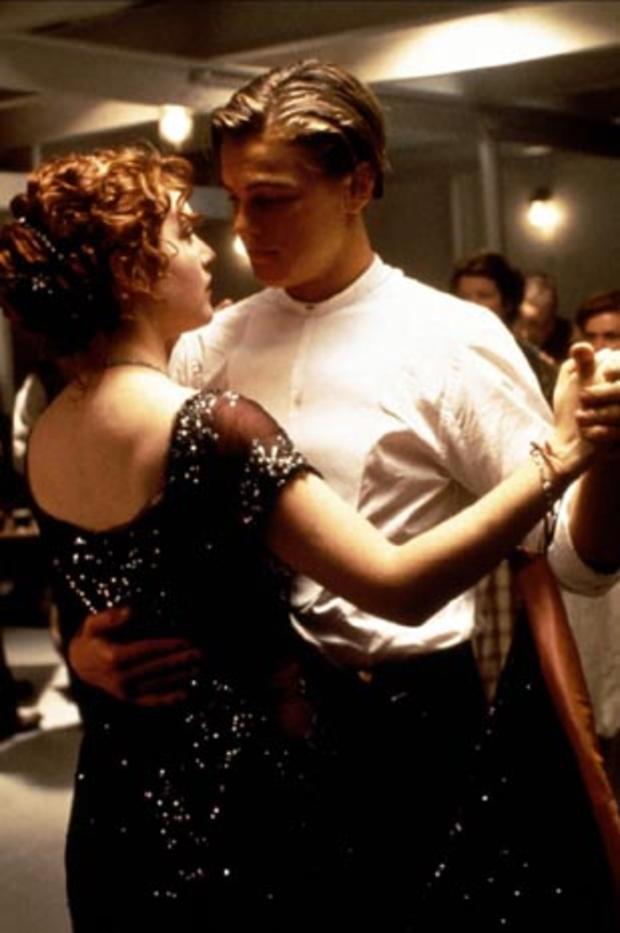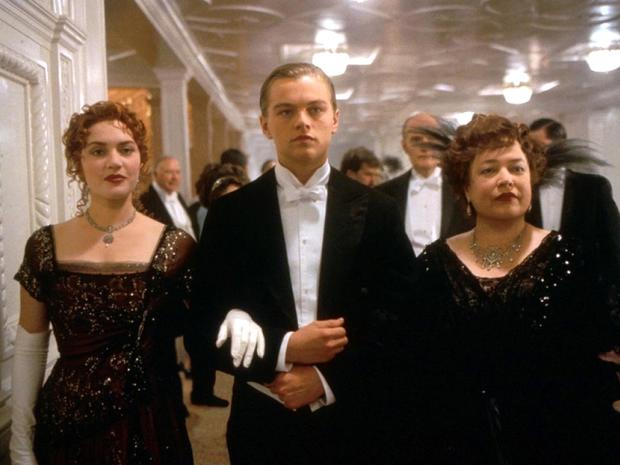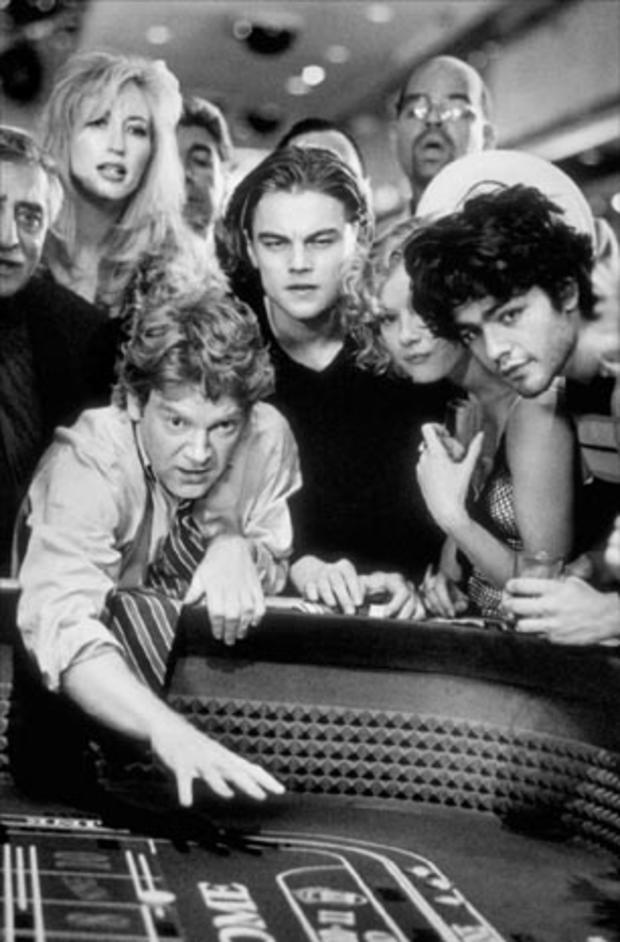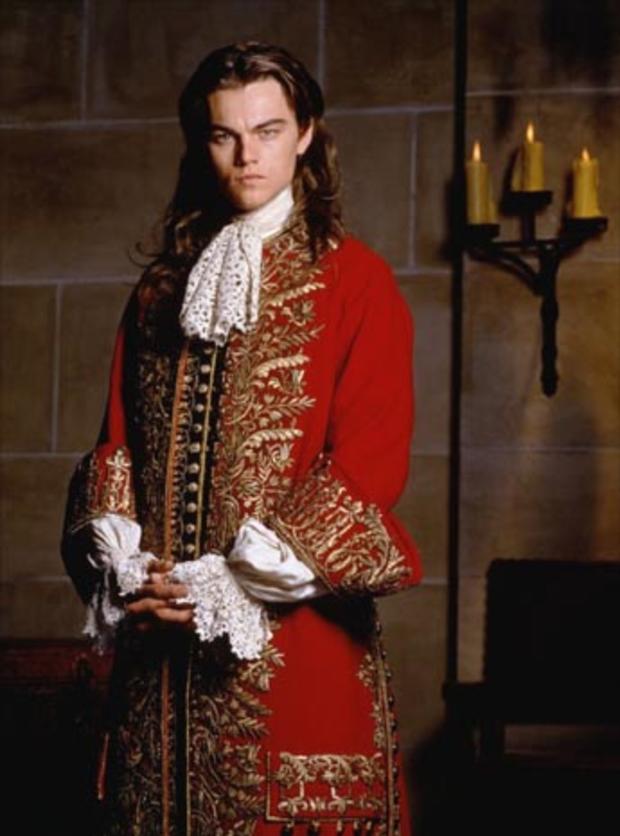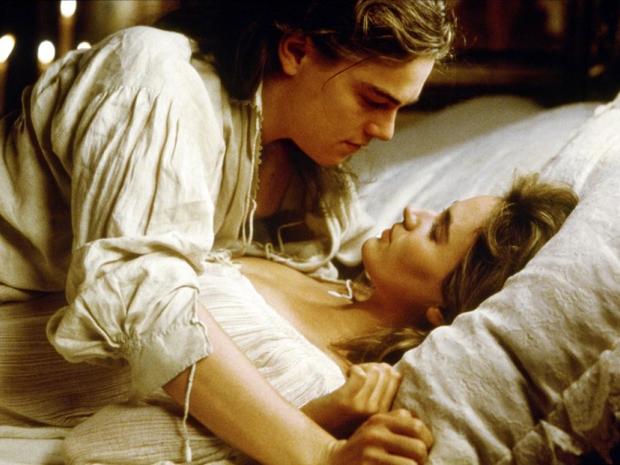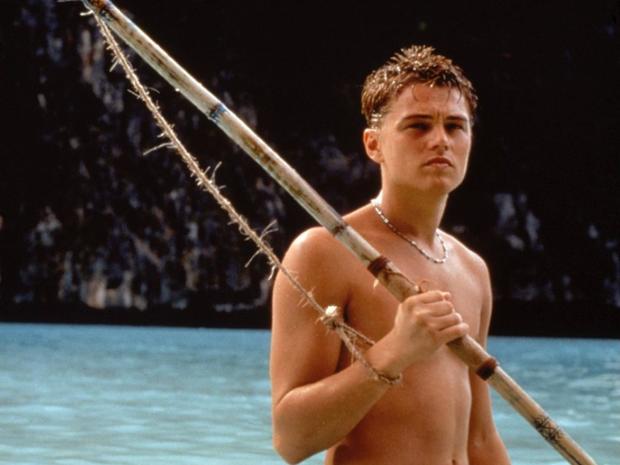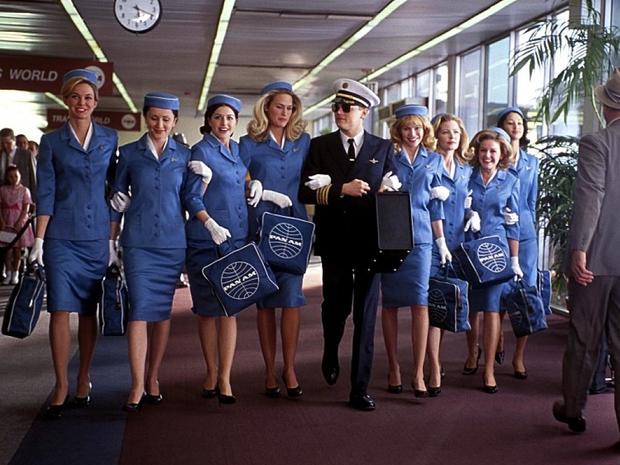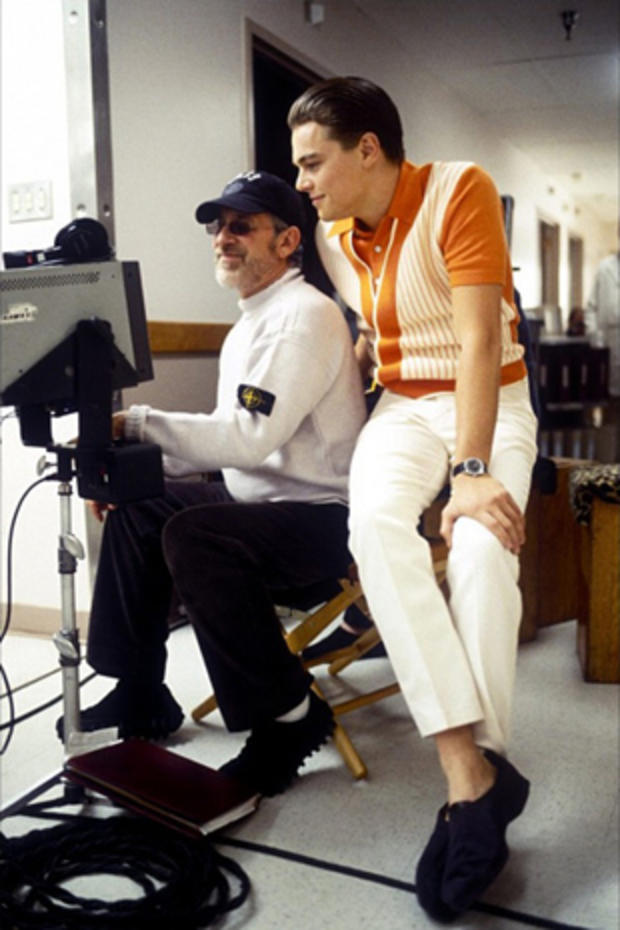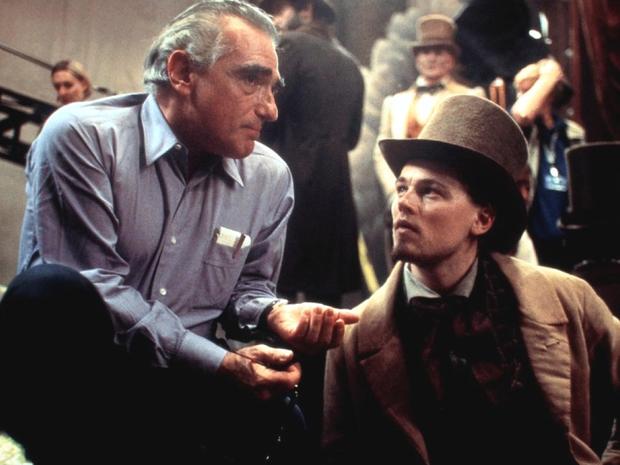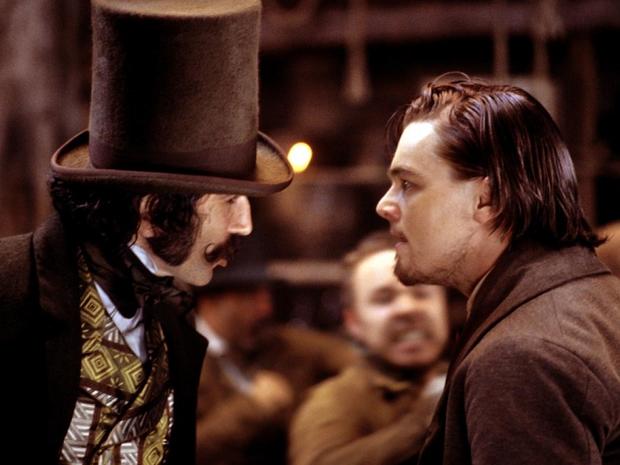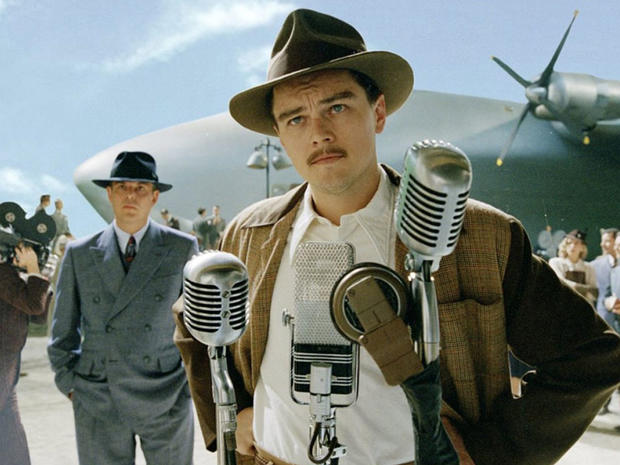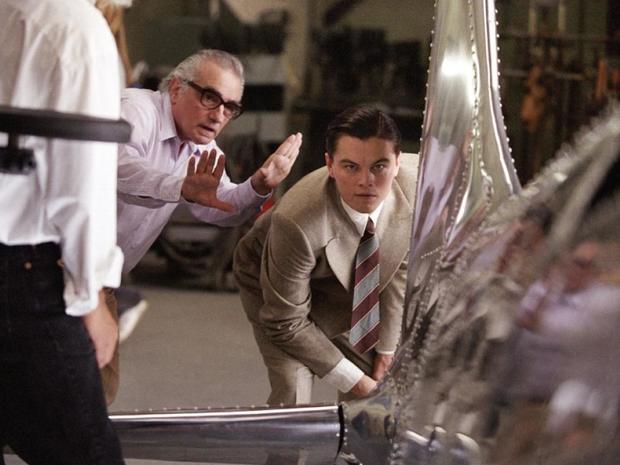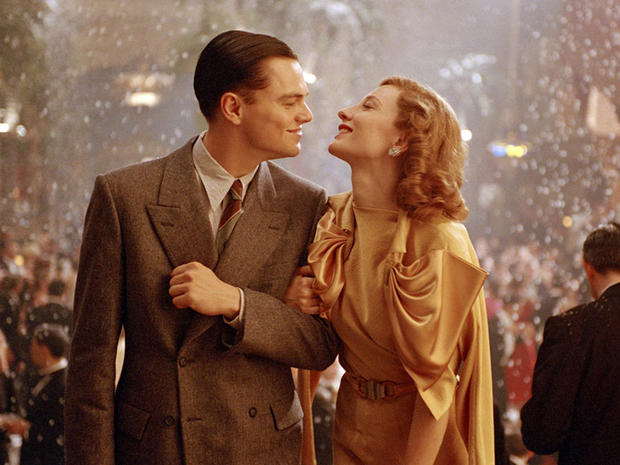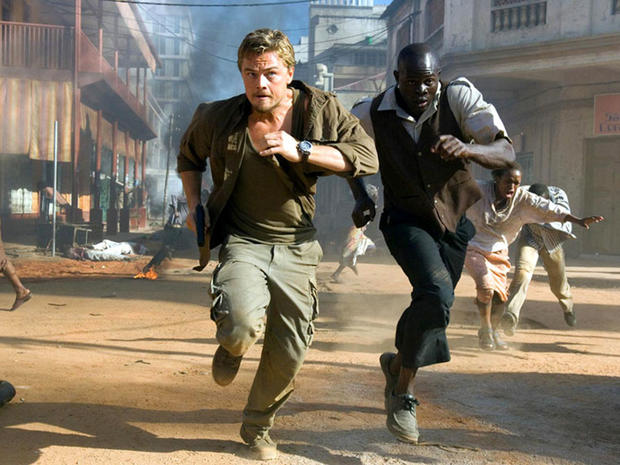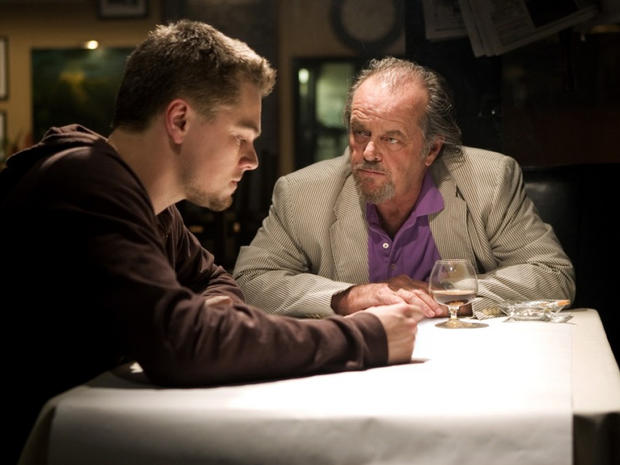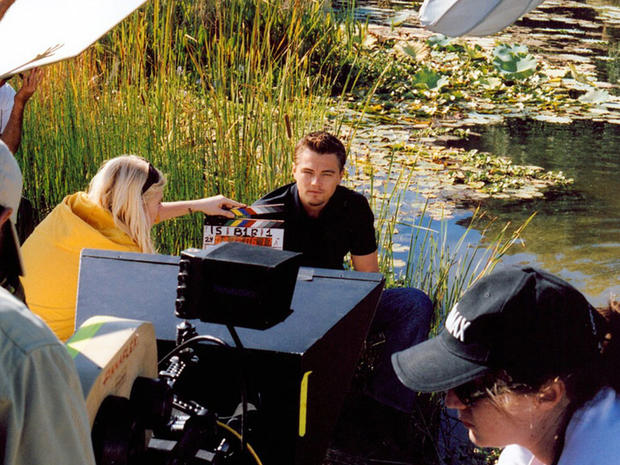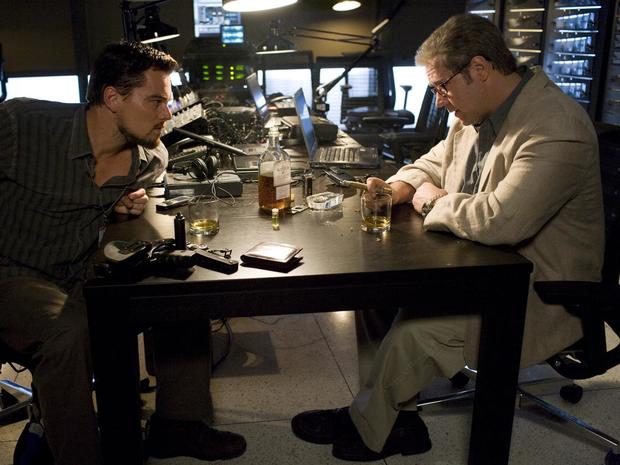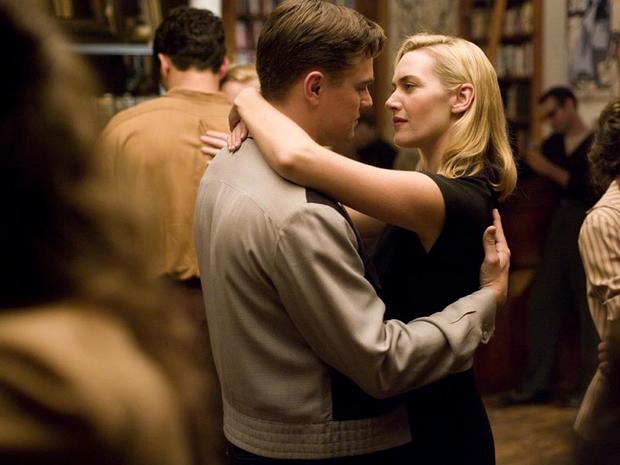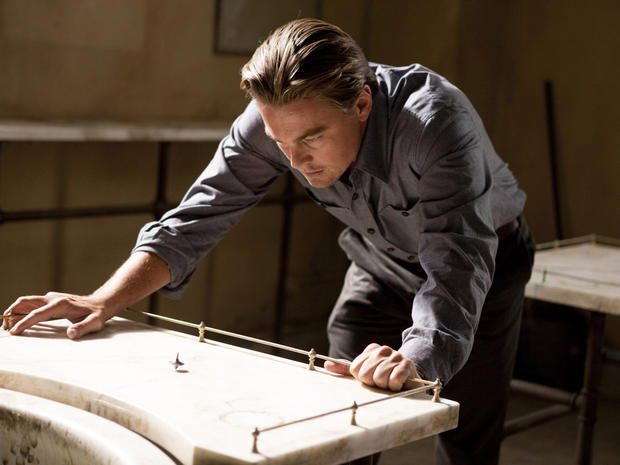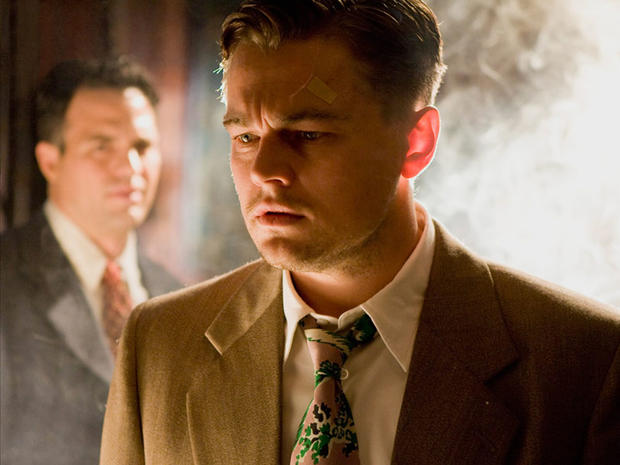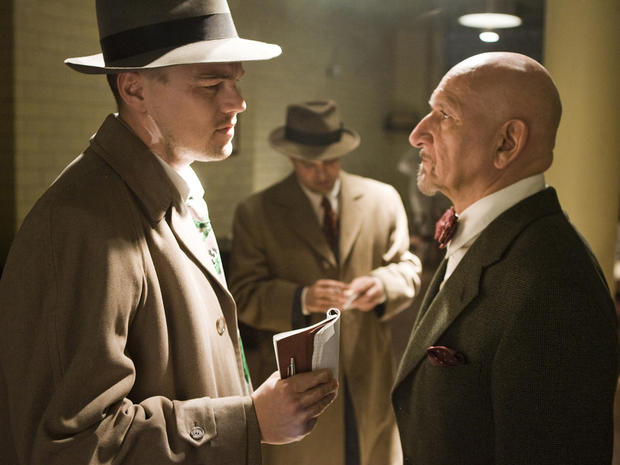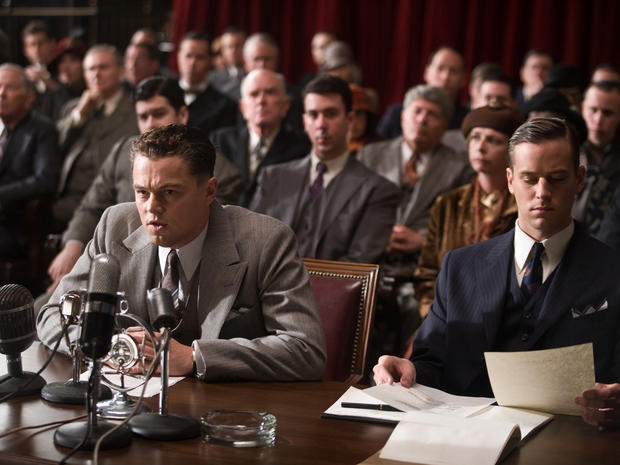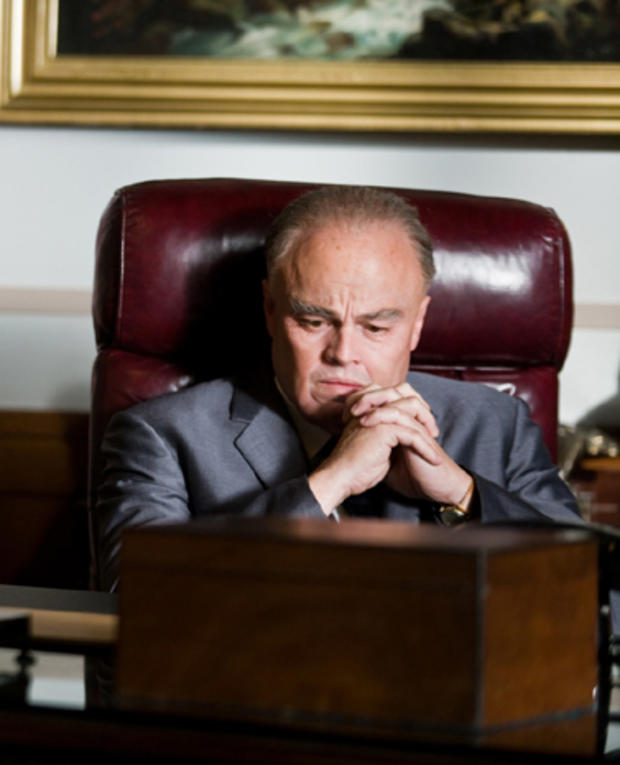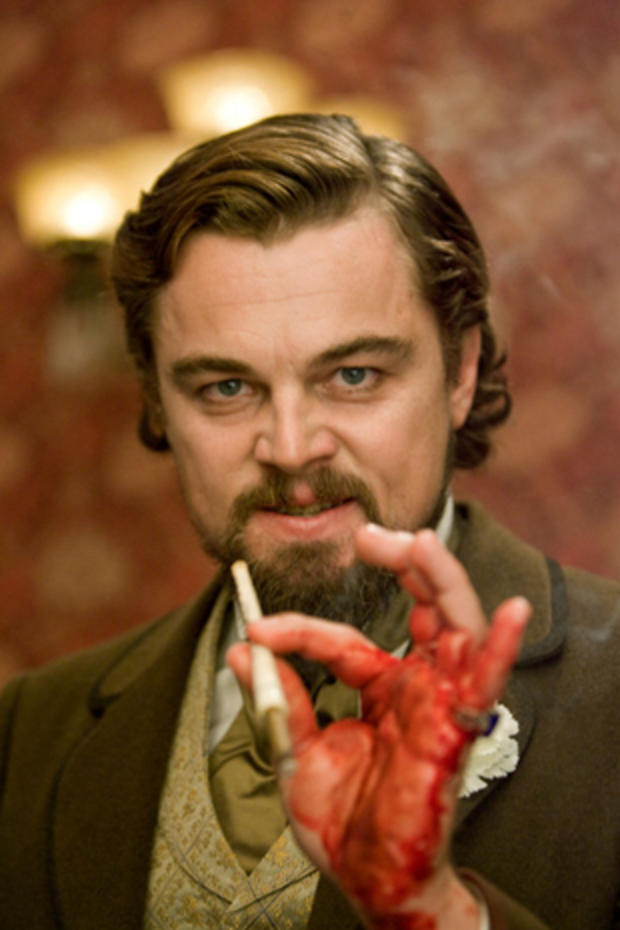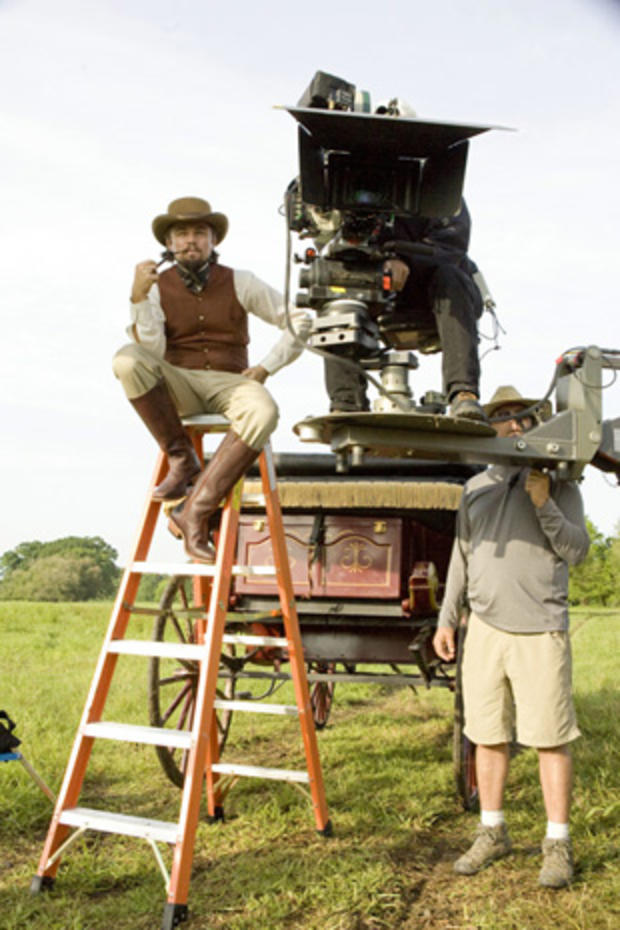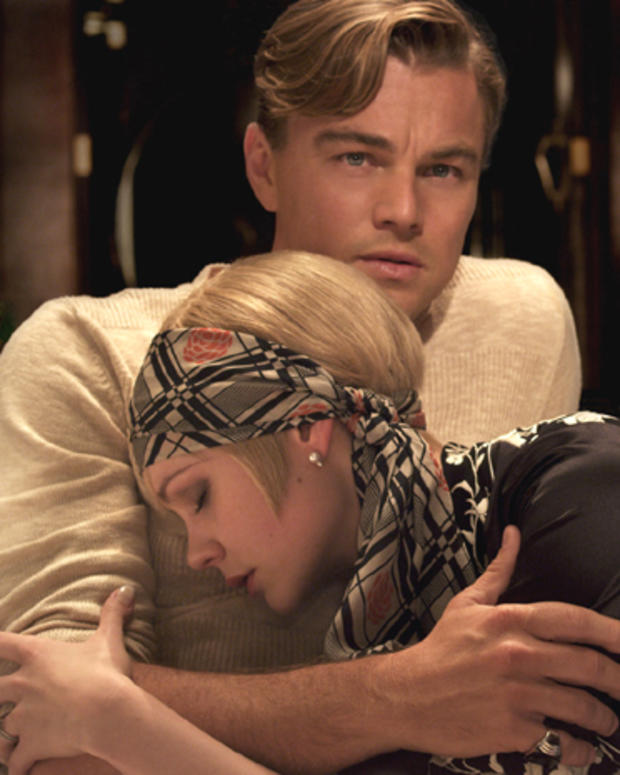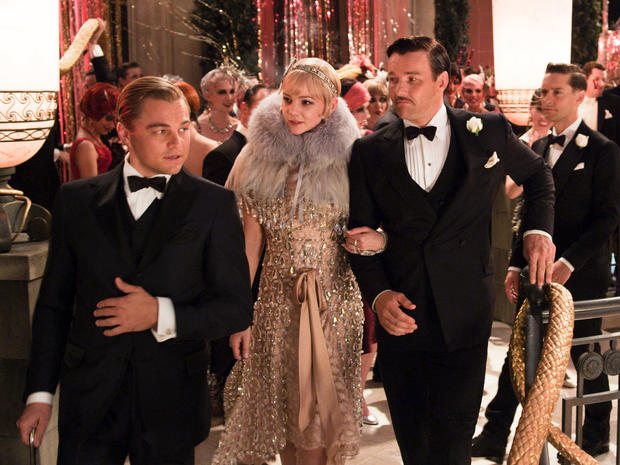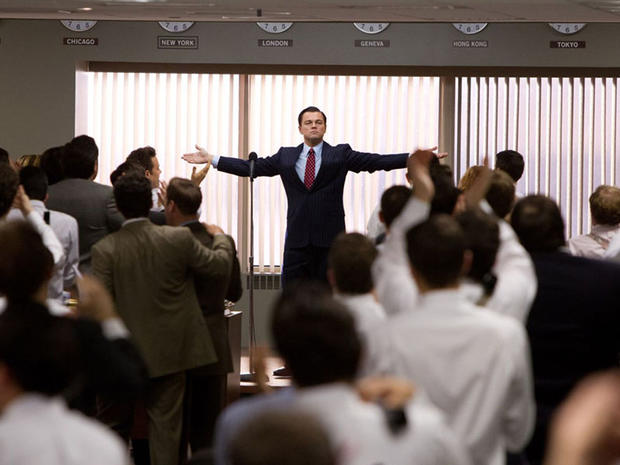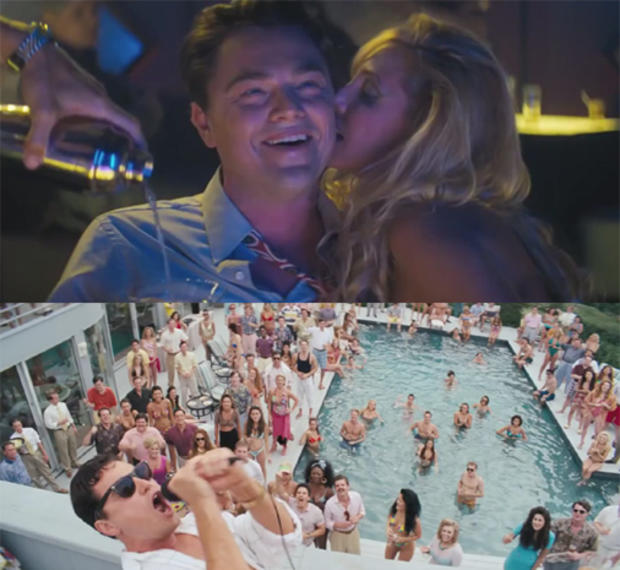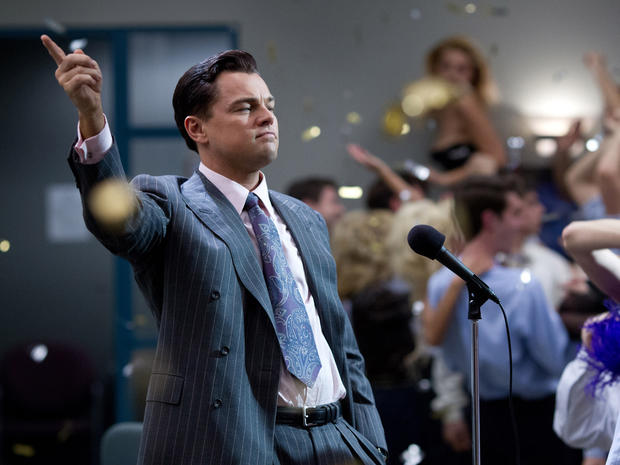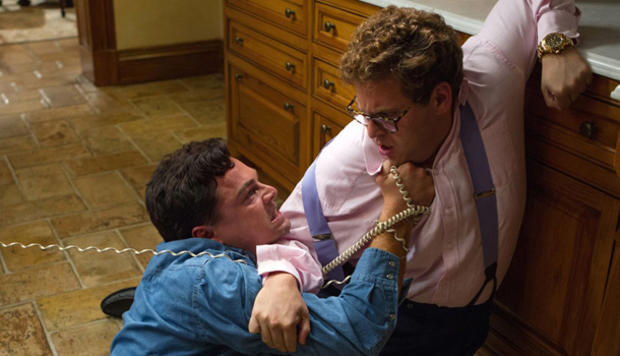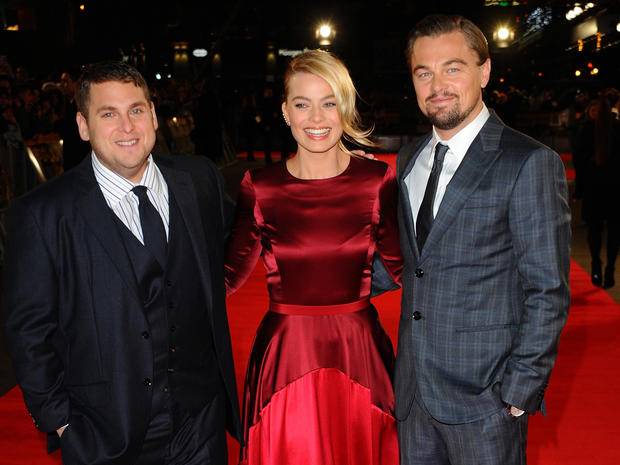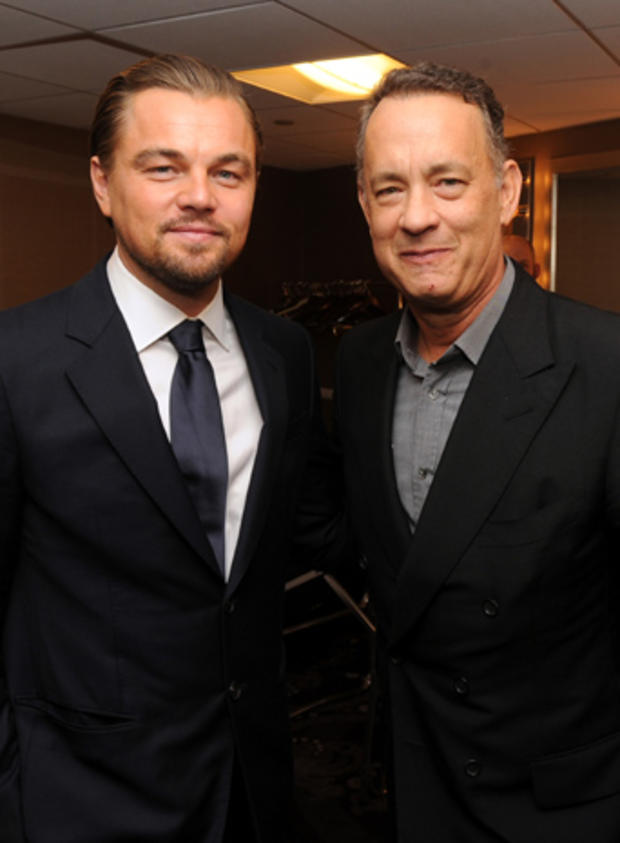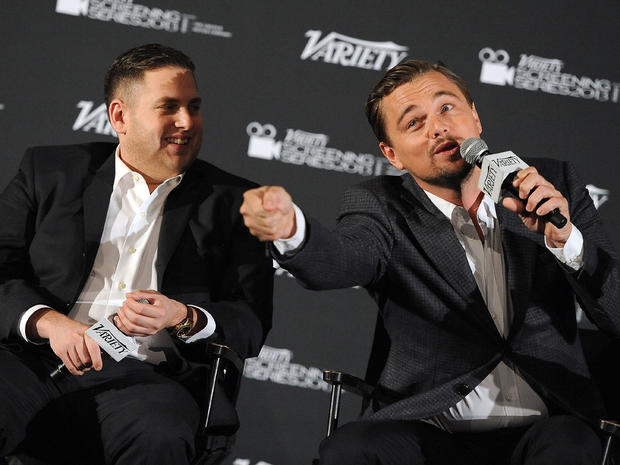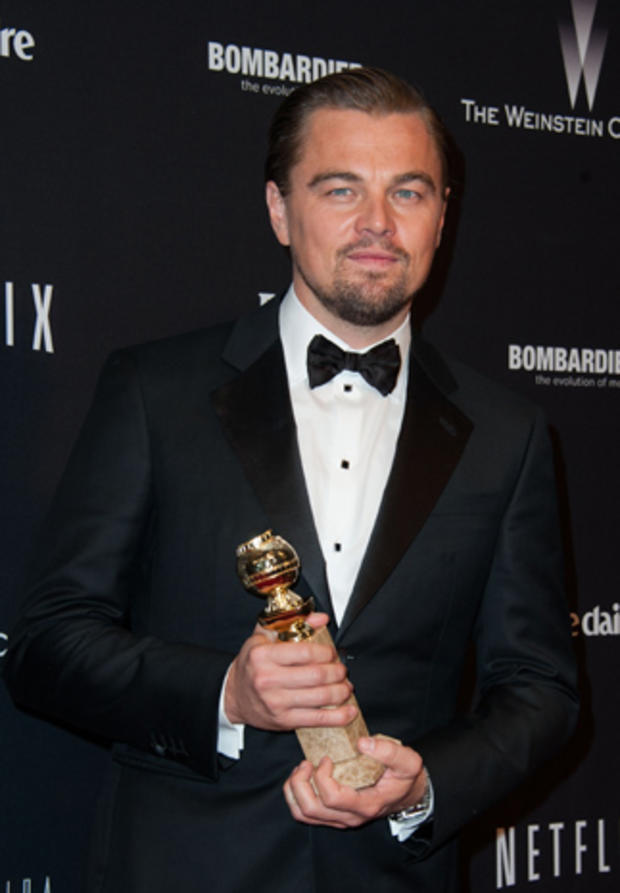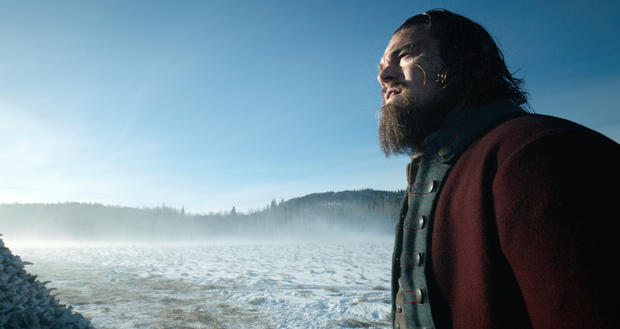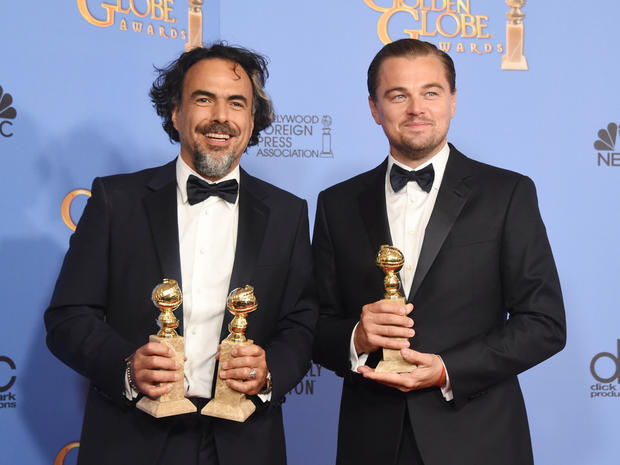Leonardo DiCaprio
The former child star who grew from a teen heartthrob in one of the biggest blockbusters of all time, to one of the most talented and bankable actors of his generation, has been nominated for five Academy Awards as an actor and producer, and won his third Golden Globe Award for Best Actor for the 2015 drama, "The Revenant."
By CBSNews.com senior producer David Morgan
Leonardo DiCaprio
Leonardo DiCaprio in a scene from the 2015 film "The Revenant," directed by Alejandro González Iñárritu. It is based on Michael Punke's novel inspired by a true-life tale of a frontiersman's fight to survive in the early 19th century American wilderness.
DiCaprio told CBS News' Charlie Rose it was one of the toughest films he's ever made. "There for nine months in sub-zero temperatures in Calgary, real locations, far-off locations, we looked at this as a grand sort of artistic experiment," DiCaprio said. "We rehearsed meticulously all day long with (cinematographer) Chivo Lubezki and Alejandro to pull off some very crucial and hard-to-do shots. And then we'd have an hour-and-a-half of natural light and it became like live theater at the end of the day, this frenetic pace and intensity that we needed to keep up with."
The actor described it as a "chapter of my life" rather than a "film commitment."
"This Boy's Life"
As a child actor growing up Los Angeles, Leonardo DiCaprio appeared in the TV series "The New Lassie," "The Outsiders," "Rosanne" and the soap opera "Santa Barbara." He also played Garry Buckman in the 1990 series, "Parenthood."
"Critters 3"
He made his film debut in the direct-to-video sci-fi flick "Critters 3" (1991), about hungry, toothsome creatures from outer space.
"This Boy's Life"
Leonardo DiCaprio's first major film role was in "This Boy's Life" (1993), starring Ellen Barkin and Robert De Niro.
"I'd never seen a set that serious before," DiCaprio told CBS "Sunday Morning"'s Lee Cowan. "I'd come from, you know, television shows and commercials. But once De Niro walked onto set, everyone was silent. And I was like, 'What the hell's goin' on?' It was like a ghost came into the room! But I realized the concentration that he put into this.
"Michael Caton-Jones, who was the director, laid some foundation for me: basically, 'Shut up, kid, when we're trying to be serious!'" DiCaprio laughed. "And, you know, 'Don't complain. Pain is temporary. Film is forever. Concentrate on the work. Prepare.' [That] really gave me the fundamentals of what it was to do a film like that."
"This Boy's Life"
DiCaprio said, "It was really watching De Niro prepare, and the chances that he would take with each scene, that it wasn't just about reading the dialogue, that it was about creating something out of thin air and embodying that character, and committing to it. That made a huge impression on me."
"What's Eating Gilbert Grape"
"What's Eating Gilbert Grape"
DiCaprio said he learned the difference between his contributions to the film and those of Johnny Depp, the central character: "It was a lot less pressure [for me]. He had to carry the story. He had to structure the story. And I was sort of allowed to do whatever the hell I wanted at any given moment, because that was the nature of the character - he was impulsive. Oftentimes, probably, I should have allowed the scene to carry on the way it should have! But I just had a big plate of spaghetti and, you know, I did what my character was going to do with a big plate of spaghetti, you know?"
DiCaprio received his first Oscar nomination, as Best Supporting Actor, for "Gilbert Grape": "It was a shock to me. I remember really being terrified of the possibility of ever winning something like that when I heard the fact that there were billions of people, or a billion people that watch this; that just terrified the hell out of me."
"The Basketball Diaries"
Leonardo DiCaprio in the 1995 film version of Jim Carroll's "The Basketball Diaries," about a young athlete falling into drug addiction.
"The Quick and the Dead"
Leonardo DiCaprio as young gunslinger Fee "The Kid" Herod in Sam Raimi's 1995 western, "The Quick and the Dead.
"The Quick and the Dead"
Leonardo DiCaprio, Sharon Stone, Gene Hackman and Russell Crowe in "The Quick and the Dead" (1995).
"Total Eclipse"
Following his very early success, DiCaprio turned down offers for some traditional Hollywood films. He told Cowan, "My father was a huge catalyst in pushing me towards more interesting films at an early age, things like 'Total Eclipse' (left, with David Thewlis), which not many people have seen, which is about the great poet Arthur Rimbaud.
"He kind of put it into a modern-day perspective for me in saying, 'Look, this guy was kind of the James Dean of his time. He was a great poet, he was a radical, he was a rebel. He sort of revolutionized that art form.' And, so, therefore my taste kind of shifted."
"Marvin's Room"
Leonardo DiCaprio played the troubled young son of Meryl Streep in the 1996 drama, "Marvin's Room," which co-starred Diane Keaton.
"Romeo + Juliet"
Baz Luhrmann ("Moulin Rouge") directed "Romeo + Juliet" (1996), a pop-infused contemporary take on Shakespeare's doomed lovers. Leonardo DiCaprio starred as Romeo Montague opposite Claire Danes as Juliet Capulet.
"Romeo + Juliet"
These Montagues are packing serious heat: Leonardo DiCaprio in Baz Luhrmann's "Romeo + Juliet" (1996).
"Titanic"
Leonardo DiCaprio and Kate Winslet as the doomed lovers in James Cameron's 1997 blockbuster, "Titanic." Winner of 11 Academy Awards, including Best Picture, it became the highest-grossing film of all time (later supplanted by Cameron's "Avatar").
"Titanic"
Looking back on "Titanic," DiCaprio told Cowan that, "We did this monumental film and I got to work with Kate, who was great, and Jim. And it was insane. We were there for eight months of our life. It was just, like, a huge part of my younger youth.
"But then, the movie comes out and it's incredibly successful. And people are saying, 'You know, this movie is huge.' And I'm like, 'Great. Cool. Isn't that what it's supposed to be?' (laughs) They're like, 'No. No. You don't understand. I mean, it's making billions of dollars.' I'm like, 'So, that's good, right? Billions of dollars are good?' (laughs) I just didn't understand, I really didn't."
"Titanic"
Kate Winslet, Leonardo DiCaprio and Kathy Bates in "Titanic."
"Celebrity"
Leonardo DiCaprio and Kenneth Branagh in Woody Allen's rueful comedy-drama of fame, debauchery and celebrity journalism, "Celebrity" (1998).
"The Man in the Iron Mask"
Leonardo DiCaprio played the dual roles of King Louis XIV and Philippe, the king's identical twin brother, in the 1998 film adaptation - one of over a dozen - of the Alexander Dumas adventure, "The Man in the Iron Mask."
"The Man in the Iron Mask"
Leonardo DiCaprio and Judith Godreche in the 1998 film of Alexander Dumas' "The Man in the Iron Mask."
"The Beach"
Leonardo DiCaprio starred as a college student on a journey to a mythical island paradise in "The Beach" (2000). Directed by Danny Boyle ("Trainspotting," "Slumdog Millionaire"), the film costarred Tilda Swinton and Virginie Ledoyen.
"Catch Me If You Can"
Leonardo DiCaprio starred in Steven Spileberg's sprightly caper "Catch Me if You Can" (2002), based on the true story of con artist Frank Abagnale, whose impersonations included a Pan Am pilot, doctor, and D.A.
"Catch Me If You Can"
Director Steven Spielberg and Leonardo DiCaprio on the set of "Catch Me If You Can."
"Gangs of New York"
Leonardo DiCaprio first worked with Martin Scorsese on "Gangs of New York" (2002), about the violence that immigrants found upon stepping off in the New World.
"My whole generation of friends - ever since I became an actor - we admired the films from the '70s, the era when the director was God and they had artistic control. And at the top of that list was Marty's work with Bob [De Niro]. It's the greatest cinematic relationship ever.
"And as soon as I got 'This Boy's Life' with De Niro, I obsessively watched all of their films together. That's a very impressionable age. And when you watch films like that, the threshold of what they accomplished - the bar is set so high (laughs) that you sort of gotta say, 'Okay. I gotta dig deep - and I wanna do something close to this good in my lifetime.' And that thirst never goes away."
"Gangs of New York"
Daniel Day Lewis as "Bill the Butcher" Cutting and Leonardo DiCaprio as Amsterdam Vallon in Martin Scorsese's "Gangs of New York" (2002).
"The Aviator"
DiCaprio's second collaboration with Martin Scorsese was a passion project: "The Aviator" (2004), the epic story of Hollywood producer, aviation pioneer and business tycoon Howard Hughes.
"The Aviator"
DiCaprio says a film like "The Aviator" would be even more difficult to get funding for today, if it doesn't have the elements of a typical Hollywood blockbuster wanna-be (one reason why "The Wolf of Wall Street" obtained funding from beyond the typical film studios).
"I understand," DiCaprio told Lee Cowan. "I mean, they've been monumentally successful with those types of films, and it's an industry that is driven by profit and they have to be accountable to their shareholders. But for me, it's kind of been about, where can I find financing outside of that? Or people that understand that audiences don't always wanna see epics or big movies coming from Hollywood that have those elements in 'em? I think that there's an audience out there that craves different types of storylines. And thank God there are people out there that have run into some wealth or have financial backing that also have taste in movies as well and say, 'Look. We're willing to take a gamble on this.'"
"The Aviator"
"The Aviator" earned 11 Academy Award nominations (including Best Actor for DiCaprio), and won five Oscars, including Cate Blanchett as Best Supporting Actress.
"Blood Diamond"
Leonardo DiCaprio (with Djimon Hounsou) earned his third Oscar nomination for his portrayal of a diamond smuggler in the 2006 thriller, "Blood Diamond."
"The Departed"
DiCaprio's third film with director Martin Scorsese was the 2006 Best Picture winner, "The Departed." A remake of the Hong Kong thriller "Infernal Affairs," "The Departed" told of the cat-and-mouse games between a Boston mob boss and the police, neither of whom know moles had been planted in each other's organizations. DiCaprio played an undercover operative who becomes a trusted ally of the Whitey Bulger-like Frank Costello (Jack Nicholson).
"The 11th Hour"
Inspired by Al Gore and "An Inconvenient Truth," DiCaprio (who as a boy said he wanted to become a marine biologist) narrated and produced the documentary "The 11th Hour" (2007), featuring scientists and statesmen discussing such environmental crises as mass extinctions, climate change, deforestation and the loss of habitats and biodiversity.
Since 1998, the Leonardo DiCaprio Foundation has focused on philanthropy and fundraising to support conservation projects and media initiatives on such pressing environmental issues as protecting rain forests, animal habitats and ocean ecosystems; rescuing tigers from extinction: and supporting clean water efforts in distressed areas.
"Body of Lies"
Leonardo DiCaprio played a CIA agent on the trail of a terrorist in Iraq in Ridley Scott's 2008 thriller "Body of Lies." Playing his CIA overseer was Russell Crowe, DiCaprio's costar in "The Quick and the Dead."
"Revolutionary Road"
Leonardo DiCaprio and his "Titanic" co-star Kate Winslet reteamed for Sam Mendes' 2008 drama, "Revolutionary Road," based on Richard Yates' novel of couple struggling to overcome dissatisfaction in their careers, their relationship, and their life in 1940s suburban Connecticut.
"Inception"
In Christopher Nolan's "Inception" (2010), Leonardo DiCaprio played a corporate spy who enters his targets' unconscious state to steal secrets - and, in one dangerous assignment, to implant a false memory.
"Shutter Island"
Leonardo DiCaprio and Mark Ruffalo in Martin Scorsese's "Shutter Island" (2010), the moody thriller based on Dennis Lehane's novel about the investigation into a missing patient at an isolated hospital for the criminally insane.
"Shutter Island"
Leonardo DiCaprio and Ben Kingsley in "Shutter Island."
"J. Edgar"
In Clint Eastwood's biopic "J. Edgar" (2011), Leonardo DiCaprio played the storied G-Man J. Edgar Hoover, recounting his decades-long leadership of the FBI and his personal relationships, including his alleged homosexuality. Also starring was Armie Hammer as Clyde Tolson.
"J. Edgar"
Leonardo DiCaprio as FBI head J. Edgar Hoover in "J. Edgar."
"Django Unchained"
Blood on his hands: Leonardo DiCaprio played plantation owner Calvin Candie in Quentin Tarantino's violent tale of the Antebellum South, "Django Unchained" (2012).
"Django Unchained"
Leonardo DiCaprio during location filming of Quentin Tarantino's "Django Unchained."
"The Great Gatsby"
Leonardo DiCaprio and Carey Mulligan as Jay Gatsby and Daisy Buchanan in Baz Luhrmann's 2013 film of F. Scott Fitzgerald's "The Great Gatsby."
"The Great Gatsby"
DiCaprio admits to a similarity between the characters of Jordan Belfort (of "Wolf of Wall Street") and Gatsby - both tales of hedonism, set in different eras. He said F. Scott Fitzgerald's tale "was supposed to be the 'Wolf of Wall Street' of its time ... and that's what's sort of in the undercurrent of it, is the fact that he went into the underworld to make his fortune, to belong to the aristocracy of the wealth of America. I mean, they're both about characters that wanted to belong and wanted to have an identity.
"Certainly Gatsby was one of the most interesting characters I've gotten to play, and works on so many different levels simultaneously."
"The Wolf of Wall Street"
DiCaprio told CBS News' Lee Cowan that he was obsessed with bringing to the screen Jordan Belfort's memoir, "The Wolf of Wall Street," about a fraudulent stock trader who elicited millions from his victims and lived a flagrantly outlandish, drug-fueled lifestyle (until the feds finally caught up with him).
DiCaprio said that the economic recession and blatant corruption on Wall Street, in addition to "this incessant need for more" as part of the culture, drove his obsession to make the film. When Hollywood studios balked, outside financing had to be obtained.
The film, directed by Martin Scorsese, was nominated for five Academy Awards, including Best Picture, Best Actor (DiCaprio), Best Supporting Actor (Jonah Hill), Best Director (Scorsese), and Best Adapted Screenplay.
"The Wolf of Wall Street"
For "The Wolf of Wall Street," DiCaprio said director Martin Scorsese pulled no punches in depicting the outrageous and shameless lives of the characters:
"We wanted to put that darker nature of humanity up on screen, warts and all. We were doing a press conference recently and people were talking about the sort of crudeness of the characters in this movie. And Marty said something very pertinent: 'Why should I be polite about my portrayal of these people? They weren't polite, you know. What they were doing wasn't polite. So, I'm not gonna make a movie that's polite about them.'"
"The Wolf of Wall Street"
"He's actually a likable guy," DiCaprio said of Jordan Belfort, with whom he spent months discussing his book and events beyond the book. "I don't agree with anything that he did. I think a lot of his actions were deplorable. But when somebody's such an open book and is so candid about what they did, and unflinching in their accounts of incredibly embarrassing activities, you have to appreciate that as an actor. Because there's not many people that really do that.
"And certainly, if we wanted to put this era up on screen, we needed somebody with that attitude. He came in there with the attitude of wanting to have the American dream, and this movie is about the corruption of that dream. And of course, that compounded with the drug use made it all the more insane."
"The Wolf of Wall Street"
DiCaprio (pictured with Jonah Hill, whose characters are both under the influence of excessive quaalude intake) said Scorsese fostered improvisation among the cast, and that the attitude on set of "anything goes" reflected the general ethos of the characters.
"That's the environment that he wanted to create. It was almost like organized chaos, you know? There was a lot of improvisation beforehand. Then, we rewrote the script according to that improvisation. But then, when we'd get on set, we'd re-improvise that improvisation. It became this sort of insanely loose, insanely free improvisational atmosphere."
"The Wolf of Wall Street"
Jonah Hill, Margot Robbie and Leonardo DiCaprio attend the U.K. premiere of "The Wolf of Wall Street," at London's Leicester Square, January 9, 2014 in London.
Eddie Awards
Leonardo DiCaprio and Tom Hanks (costars from "Catch Me If You Can") pose in the green room at the 64th Annual ACE Eddie Awards at Paramount Studios on February 7, 2014 in Hollywood, Calif.
"The Wolf of Wall Street"
Actors Jonah Hill and Leonardo DiCaprio speak at the 2014 Variety Screening Series of 'The Wolf of Wall Street' at ArcLight Hollywood on February 10, 2014 in Hollywood, Calif.
Golden Globes
Actor Leonardo DiCaprio won the Golden Globe for Best Actor (Comedy/Musical) for "The Wolf of Wall Street."
"The Revenant"
Leonardo DiCaprio as frontiersman Hugh Glass in a scene from "The Revenant."
Golden Globes
Director Alejandro González Iñárritu poses with awards for Best Director and Best Motion Picture (Drama), and Leonardo DiCaprio poses with the award for Best Actor in a Motion Picture (Drama) for TThe Revenant," in the press room at the 73nd annual Golden Globe Awards, January 10, 2016, at the Beverly Hilton Hotel in Beverly Hills, California.
For more info:
Leonardo DiCaprio Foundation (California Community Foundation)
Follow Leonardo DiCaprio on Twitter (@LeoDiCaprio) and on Facebook
By CBSNews.com senior producer David Morgan
